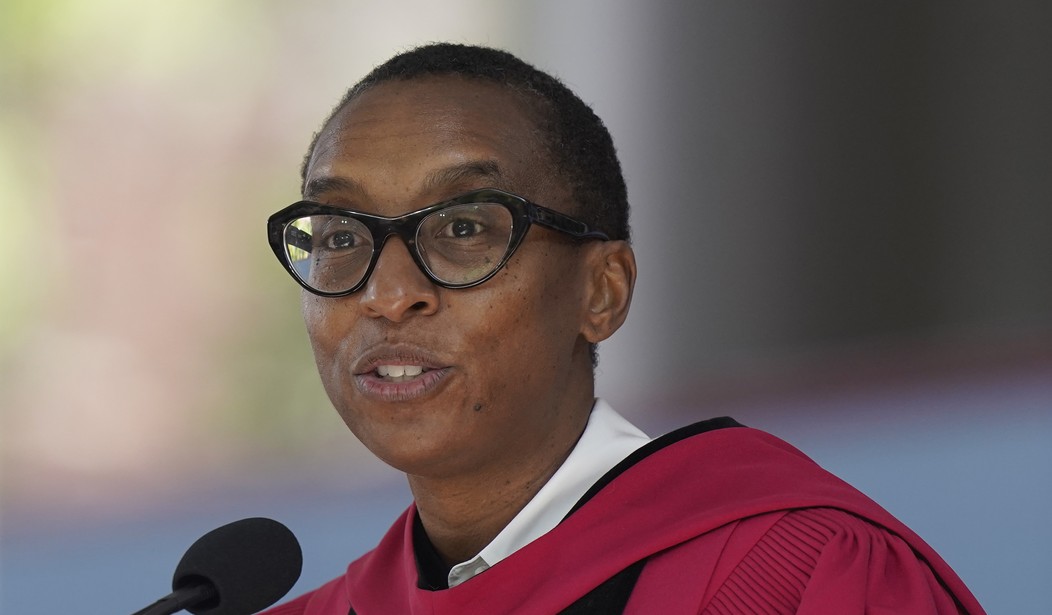As you probably know already, Harvard has had a rough few months. In fact it feels like it has been one bad news story after another ever since the 10/7 attack on Israel by Hamas. That's when extremists on campus first made news for a statement saying Israel itself was "entirely responsible" for the attack.
That was followed by a whole serious of subsequent embarrassments: Lawsuits filed against Harvard (and other universities) by Jewish students, the disastrous congressional testimony of Claudine Gay and the backpedaling that followed, the plagiarism scandal involving President Gay, word that Harvard had tried to silence the NY Post from covering the plagiarism story, growing calls for Gay's ouster followed by her resignation.
And just this week, we've had a fresh outbreak of anti-Semitism at Harvard which seems to indicate the extremists on campus have learned nothing. In fact one of the groups involved in the latest scandal is the same one that published the "entirely responsible" statement last October.
With all of that recent history in mind, there are a couple of interesting stories out of Harvard today. The first one involves how Harvard wound up with a President guilty of plagiarism. It seems the presidential search committee didn't look at her scholarship when selecting her. In fact, the evidence suggests the role of scholarship was significantly downplayed overall during her selection.
The committee favored Gay’s administrative expertise during the process, passing over two internal candidates who boasted both administrative experience and far more extensive scholarship credentials: Tomiko Brown-Nagin and John F. Manning ’82.
Brown-Nagin, dean of the Radcliffe Institute for Advanced Study, published two books and won the highest award in American History writing, while Manning, dean of Harvard Law School, argued nine cases before the U.S. Supreme Court and wrote more than 40 legal articles.
Instead, after one of the shortest searches in recent history, the job went to Claudine Gay who had a relatively thin academic resume, one we now know was tainted with plagiarism.
The search for Harvard’s 30th president lasted just five months, making it the shortest Harvard presidential search in almost 70 years...
Though Gay wrote multiple articles on race and politics that have been widely cited, her scholarship was decisively more limited compared to those of Manning and Brown-Nagin.
When the search process began, Manning had nine years of HLS administrative experience, first as deputy dean and then as dean of HLS since 2017. Brown-Nagin had four years of top administrative experience, having been promoted to her deanship around the same time as Gay in 2018.
Let me gently suggest that Harvard's presidential search committee was doing the same thing its admissions office has been doing, i.e. finding ways to give underrepresented minority groups a leg up without admitting they are consequently making it harder for other groups they see as overrepresented. In this case I don't think it's a coincidence that Harvard chose a metric focused on administrative experience over scholarship. By downplaying scholarship, they gave Gay, who is black, an advantage over Tomiko Brown-Nagin and John F. Manning, an Asian woman and a white man.
There's an old saw on the left that black people have to be "twice as good" to get the same job because of the added weight of racism working against them. Maybe there's some truth to that in some cases but it wasn't true in this case. Claudine Gay wasn't twice as good as the other candidates she was up against, certainly not academically. So the search committee just conveniently decided to downplay the far more impressive achievements of the other candidates, favoring Gay in the process. Of course no one involved will come forward and admit that the idea of appointing the first black president of Harvard really appealed to them and maybe influenced how this brief search was carried out. Harvard's magicians of race never want to spoil the trick.
Moving on, in the wake of all of this chaos and negative press, Harvard is now seriously considering a policy of political neutrality.
Interim Harvard President Alan M. Garber ’76 is expected to announce a working group that will consider a policy of institutional neutrality, a move that comes just months after the University became embroiled in controversy over its response to Hamas’ Oct. 7 attack on Israel.
A formal stance of neutrality, in which Harvard would refrain from making political statements as an institution, would be a marked shift from the University’s current approach to politics. It would also, in theory, help the University avoid the pressure it’s faced in the past to take political positions on contentious issues — such as the Israel-Palestine conflict.
Eric S. Maskin ’72, a University Professor, told The Crimson that Garber intends to release a public statement about institutional neutrality. Former Harvard Medical School Dean Jeffrey S. Flier and another person familiar with the decision both confirmed the announcement would entail the creation of a working group on the policy...
“If the University just got out of the business of commenting on controversies and current events, they’d save themselves a whole lot of trouble,” said Psychology professor and CAFH co-president Steven A. Pinker, who proposed adopting institutional neutrality in a Boston Globe op-ed published four days after Gay’s congressional testimony.
The University of Chicago has adopted a policy like this. Harvard should do likewise but it won't solve the school's current problems. So long as the noisy extremists are willing to carry on being noisy and extreme, the school will continue to face outside scrutiny.







Join the conversation as a VIP Member